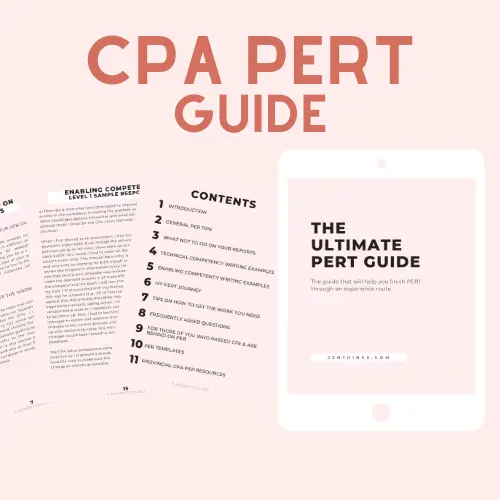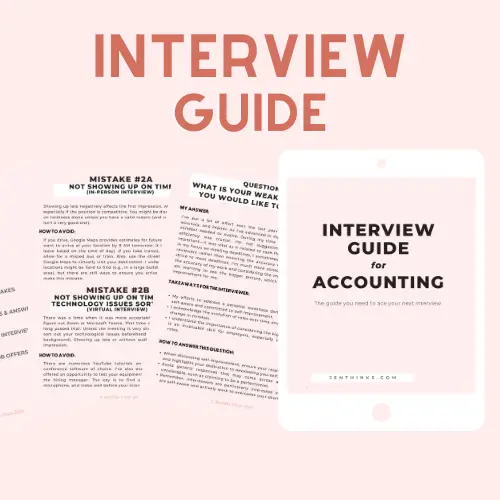This post is meant for people who are interested in becoming a CPA (Certified Professional Accountant) in Canada without an accounting or business degree. I am in the CPA PEP program right now even though I actually went to university for a Bachelor of Arts in Psychology.
This route might not be the most time-efficient way. It will certainly take longer than if you had gotten an accounting or business degree with a focus on accounting and finance courses. However, this does not mean this is the worse path. In fact, I don’t think I would have enjoyed and done as well in my accounting courses if I had taken them in my undergrad right after high school. I worked full-time while I finished my accounting courses and I knew for a fact then accounting was the right path for me.
If you are almost done with your non-accounting/business degree or have recently graduated with one and wondering how you can pivot to becoming a CPA, please continue reading.
What Do You Need To Apply To CPA PEP If You Do Not Have An Accounting Or Business Degree?
You need all of the following* in order to apply to CPA PEP:
– an undergraduate degree in any subject
– completion of all required Prerequisite Preparatory Courses (formerly known as PREP)
*there is a path for professionals with years of eligible working experience to apply to CPA PEP without an undergraduate degree; for more information, check out CPA Canada’s website
~ More CPA Posts ~
CPA PEP Core 1 – How to Study for the Module and the Exam
CPA PERT – Ultimate Guide on How to Get Your First Experience Report via EVR Approved
CPA PERT – Enabling Competencies Examples
Densmore for CPA PEP – Are The PEP Essentials Packages Worth It?
CPA PEP Module – Regular Module or Extended Module?
Where Can You Take The Prerequisite Preparatory Courses in Canada?
There are three options:
1) take the Prerequisite Preparatory Courses with your provincial or regional CPA body (e.g., CPAWSB for the Western Regions) part-time
2) take the equivalent courses at a college or university part-time or full-time
3) complete the accredited programs offered by post-secondary institutions (this option might include PEP modules)
For option 2, the easiest way for you to identify the equivalent courses for a particular college or university is by doing a quick google search of ‘[school name] CPA.’
I know people who have done either Option 1 or 2 but I chose option 2. I completed all my prerequisite preparatory courses at Douglas College (a local college) that worked out for me. The school is located close to the public transit, offers cheaper tuition than universities, offers UPass (monthly subsidized public transit pass) and most importantly, offers small class sizes (30 to 40 students per class). The quality of the instructors was also excellent.
Do You Need To Work In Accounting Or Finance While You Complete The Prerequisite Preparatory Courses?
No, you don’t need to work in accounting or finance while you complete your prerequisite preparatory courses. If you do, you could potentially use the work experience towards your 30-month PERT requirement.
I worked in accounting as I finished my prerequisites and strongly suggest you do the same. This is because of the following reasons:
– you will have a better idea whether an accounting or finance career is for you
– you will be exposed to industry trends and career paths that will help you decide your future path
– you might be able to apply the knowledge you gain in class in a real-life setting
– you will begin to build your professional network early
The list could go on and on but these are some of the most important ones.
You Are Almost Done With All The Prerequisite Preparatory Courses – Now What?
I would suggest you attend one of the Info Sessions for Post-Secondary Students offered by your provincial bodies (e.g., here is the link for CPABC) a couple of terms before you are finished with all the required courses. The info session will provide updated resources and a chance to ask questions related to the application process.
To submit an application, you will have to create an account on your provincial My CPA portal (e.g., CPAWSB). From there, you will request transcript assessments. In my case, since I completed my Bachelor’s and prerequisites at different schools (Bachelor at UBC and prerequisites at Douglas College), I had to request two transcript assessments.
Once your transcripts have been assessed, you are officially enrolled in CPA PEP.
This is only the first part of becoming a CPA in Canada without an accounting or business degree. In my next post, I will talk about the PEP program as that will bring you one step closer to becoming a CPA.


